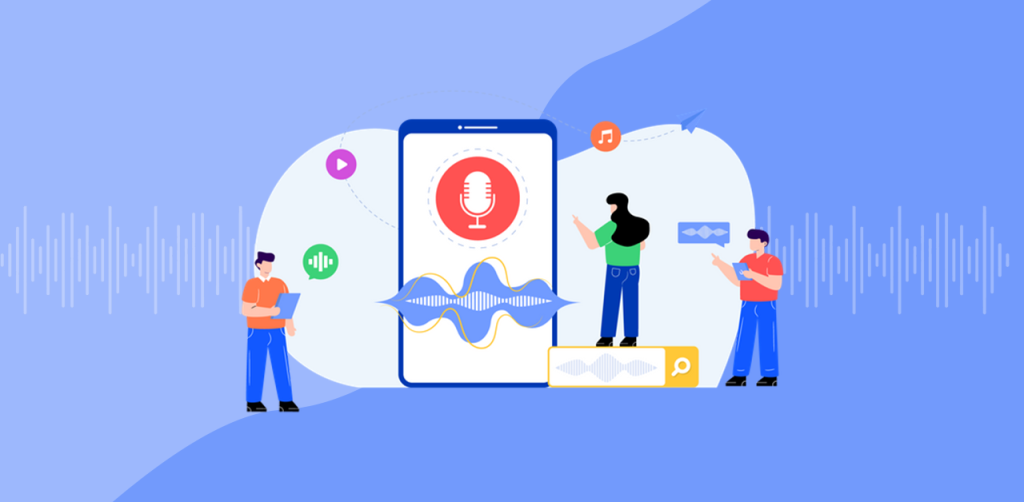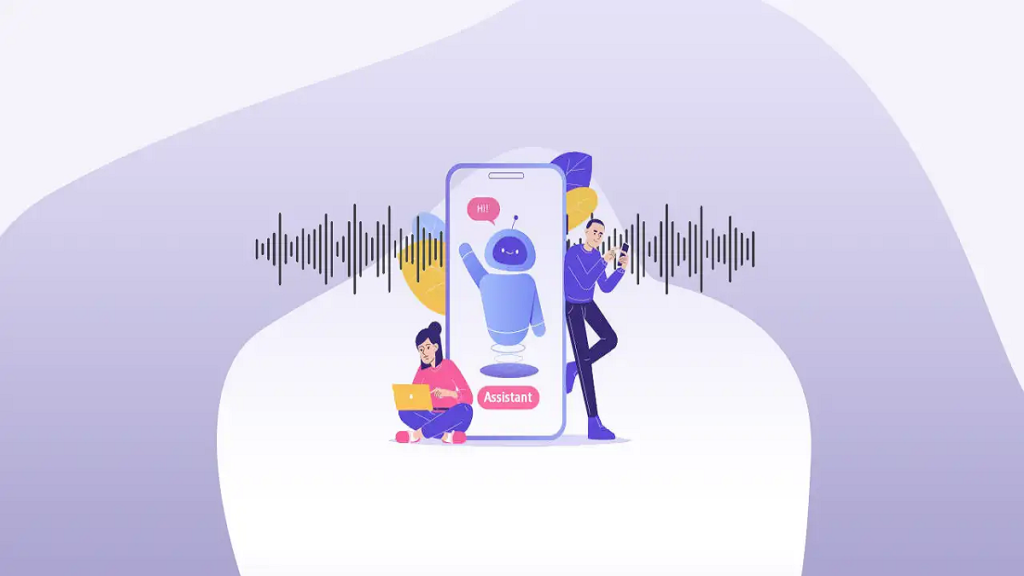For the majority of us, having an assistant who constantly answers the phone, anticipates all of our needs, and acts when needed would be the ultimate luxury. Voice assistants, also known as artificial intelligence assistants, have made that luxury possible. Voice assistants are relatively tiny devices that can do several tasks when they hear a wake word or command. They may play music, turn on lights, take online orders, respond to inquiries, and more. Think about how voice assistants are changing our lives.
Virtual assistants, who operate remotely and are capable of handling a wide range of activities, should not be mistaken for voice assistants. Voice assistants, on the other hand, rely on technology. Voice assistants will become increasingly useful in both personal and professional settings as they develop.
Utilities Of Voice Assistants

1. Engaging User Experience
Voice assistants are the most engaging interfaces for users. Users may ask for everything they want from the programs by speaking to them organically, even while multitasking. Additionally, this lessens the cognitive strain on the user to accomplish their goals inside the program, and voice assistant-enabled apps are seen as being simpler to use than those that do not.
Voice assistants are seen by consumers as the quicker, more intelligent, and more convenient method to carry out daily tasks, according to a PwC survey. Moreover, 93% of users are happy with their voice assistants; 50% are very pleased. Voice assistants make users feel more confident, intelligent, content, organized, and cheerful. That’s how voice assistants are changing our lives.
2. Aid For Your Applications
Existing touch, text, and mouse-based graphical user interfaces often have issues with users having to learn how to use the program, missing its benefits, and becoming annoyed in the process. One of the main causes of people abandoning programs after only one usage is friction.
Your app’s voice assistant allows users to ask precise questions and obtain assistance when needed. Making the ideal initial impression and allowing consumers to naturally discover the value of your application is what this method entails. Additionally, voice aids in guiding users through the initial onboarding process, preventing single-use drop-offs, and accelerating each user’s experience with your product.
3. Natural Language Processing And Detection
Natural language processing (NLP), machine learning (ML), and artificial intelligence (AI) all aid in the natural speech recognition of voice-activated assistants. Our typing style on search engines differs from that of natural language.
When someone looks for “how to cook pasta,” for instance, we might inquire, “How do you cook pasta?” The idea of speaking naturally is also used in voice-activated assistants. One of the main reasons individuals employ their helpers so often is because of this advantage.
These days, one doesn’t even need to launch an app. The built-in voice assistant on most smartphones may be accessed by pressing a specific voice assistant button. To ask any question, all one has to do is press that button. The reason “Hey Google” is so well-known is because of this. Consider this while thinking about how voice assistants are changing our lives.
4. Free 24/7 Support
Every application and service depends on maintaining and growing a customer base, and maintaining a 24/7 global support team may be expensive. For this reason, a lot of businesses have chosen to forgo round-the-clock assistance in favor of FAQs and lengthy help center articles that allow customers to “self-service” support.
However, consumers find this kind of “self-service” via articles to be laborious and often get confused by the deluge of information, leaving them unsure of how to proceed. Instead, voice assistants may answer the user’s inquiries, help them through the issue, keep collecting data in the same way that an actual customer support agent would, and direct the user to the appropriate resolution.
In addition to providing the user with knowledge, this kind of assistance may help them input the data required for their success and direct them toward the appropriate procedure.
5. Better Workplace Productivity
Voice assistants have the potential to significantly boost people’s productivity. Executives can now automate what they used to do by hand, freeing them more time to concentrate on things that need their full attention. Employees may use voice typing to do hands-free work. They can see how voice assistants are changing our lives.
Making appointments, taking notes, and looking at the upcoming calendar all need human labor, but not anymore. Using voice assistants to operate hands-free at work relieves stress and other workplace distractions. Better productivity results from this, which improves total results.
6. Personalize Your App Experience
Voice assistants may be customized for each user in each circumstance or application process. Speech assistants can react to users most appropriately based on their understanding of the speech and visual context of apps.
This implies that responses may be sent to each user according to their choices, language, and location. With search services, leading companies already do this; voice assistants may follow suit for each user in each application.
7. Offer A Pervasive Experience
Regardless of the application or device, the user is using, voice assistants provide a uniform experience. When users go between your mobile and online apps, the assistant will allow them to continue where they left off. This is true for all voice assistant-equipped apps. Voice assistants may use data from one application to another, a feature that is referred to as “connected ubiquitous experience.”
Voice assistants provide several advantages for both companies and app users. They reduce expenses associated with customer service and provide customers with a customized and efficient voice experience. Although voice assistants are still relatively new, businesses have less and less time to fully use them before it’s too late.
8. Convenience & Companionship
It is evident from the information above how voice AI is changing our world. Voice assistants make everything easier, even simple tasks like retrieving information on a certain subject or creating a reminder. According to a theory known as KISS (keep it simple stupid), outcomes improve with increased simplicity. Voice-activated assistants’ user design makes this idea clear.
Another advantage of voice-enabled programs is companionship. Humans and robots seemed to have a dominating and subservient relationship. Nevertheless, a lot has transpired since the conception of this idea. AI and ML can learn, so when you’re feeling down, they can engage and listen to you. For instance, you may ask Siri to give you a joke, and it will respond with a random joke that will make you laugh.
A further example is Replika AI. The virtual companion app Replika makes use of the same voice assistant-related technological framework. It was started as a general safe place where people may express themselves and assist solitary individuals throughout the epidemic.
Wrapping Up
It is evident how voice assistants are changing our lives; they are not a passing trend. Experts in the area predict that voice assistants will soon be found in any gadget that has an operating system. Future kids will speak about everything and everything that they can see.
This idea is currently being investigated. Furthermore, the number of voice assistant users is increasing every day compared to the previous one. We would be negligent if we did not embrace the usage of these programs in our lives, given all that they have to offer.
FAQ
Q: Are voice assistants like JARVIS or EDITH available?
A: Though you can’t discover a new material or call a drone strike, with today’s voice assistant, you can do pretty much all of your daily work, like discovering a nearby restaurant or calling a cab.
Q: Who makes the greatest use of voice assistants?
A: Tech-savvy people, young adults, and working professionals often use voice assistants because they are useful for hands-free information access, reminder settings, and operating smart home appliances.
Q: How will voice assistants evolve in the future?
A: The future of voice assistants is bright; thanks to developments in AI and natural language processing, they should become more complex, incorporated into a wider range of gadgets, and indispensable in our day-to-day activities.







